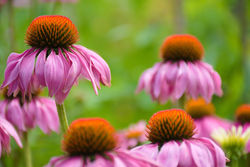How to plant a spring container
- Lars Wildes
- Apr 3, 2024
- 2 min read
Spring is the perfect time to add a splash of color to your outdoor spaces with beautiful flowering containers. In this guide, we'll walk you through the steps to plant a spring container garden using normal potting soil, including a clever trick to save on soil and tips for caring for your blooming masterpiece.
Here's how the process looks in action...
Step-by-step guide to planting a spring container
1. What you'll need
Here are a few of the things that you'll need to get started.
Large container/pot. In our video, we used an old metal container and added drainage holes with a nail and a hammer.
Normal potting soil
Plastic pots or other fillers (sticks, rocks, broken pots, etc.)
Spring flowers like petunias, pansies, violas, snapdragons, and dianthus
Gardening gloves and trowel
Watering can or hose with a gentle nozzle
2. Prepare the pot or container
Place plastic pots or other fillers at the bottom of the large container. This helps to provide drainage and reduces the amount of potting soil needed.
Ensure your container has drainage holes to prevent waterlogging. If it doesn't, add drainage holes yourself with a drill or a hammer and nail.
3. Choose the flowers you want
Select a variety of spring flowers such as petunias for cascading color, pansies for lasting blooms, violas for delicate charm, snapdragons for vertical interest, and dianthus for a sweet fragrance.
Check the labels on the flowers (or ask your favorite local gardener) to know their sunlight requirements. Some may prefer full sun, while others thrive in partial shade.
The ones we planted in our video love full sun.
4. Planting up the container
Fill the container about halfway with normal potting soil. Then, gently remove the potted plants from their containers and loosen the roots slightly.
Arrange the plants in the container, considering height and color contrast for an appealing arrangement. Fill the gaps with more potting soil, making sure to press lightly around the plants to secure them.
5. Caring for your container after planting
Water the container thoroughly after planting, allowing excess water to drain out.
Regularly check the moisture level of the soil, as containers can dry out quickly, especially in warm weather and full sun.
Deadheading is essential for promoting continuous blooming. Pinch off spent flowers to encourage new growth. Remember to pinch them off rather than pulling, as this can damage the plant.
Fertilize your container garden every few weeks with a balanced liquid fertilizer to keep the plants healthy and blooming.
Tips for flower pot and container success
Group together flowers with similar light and water requirements.
Rotate the container occasionally to ensure all sides receive sunlight evenly.
Consider adding a mulch layer on top of the soil to retain moisture and suppress weed growth.
With these simple steps, you can create a stunning spring container garden that will bring joy and color to your outdoor living space. Whether you're a seasoned gardener or trying your hand at gardening for the first time, planting a spring container is a delightful way to welcome the new season.
Any questions or comments? Just drop them below or find us on YouTube here: https://youtube.com/@perennial-garden?si=hoXhEt1th5cQctfB









コメント